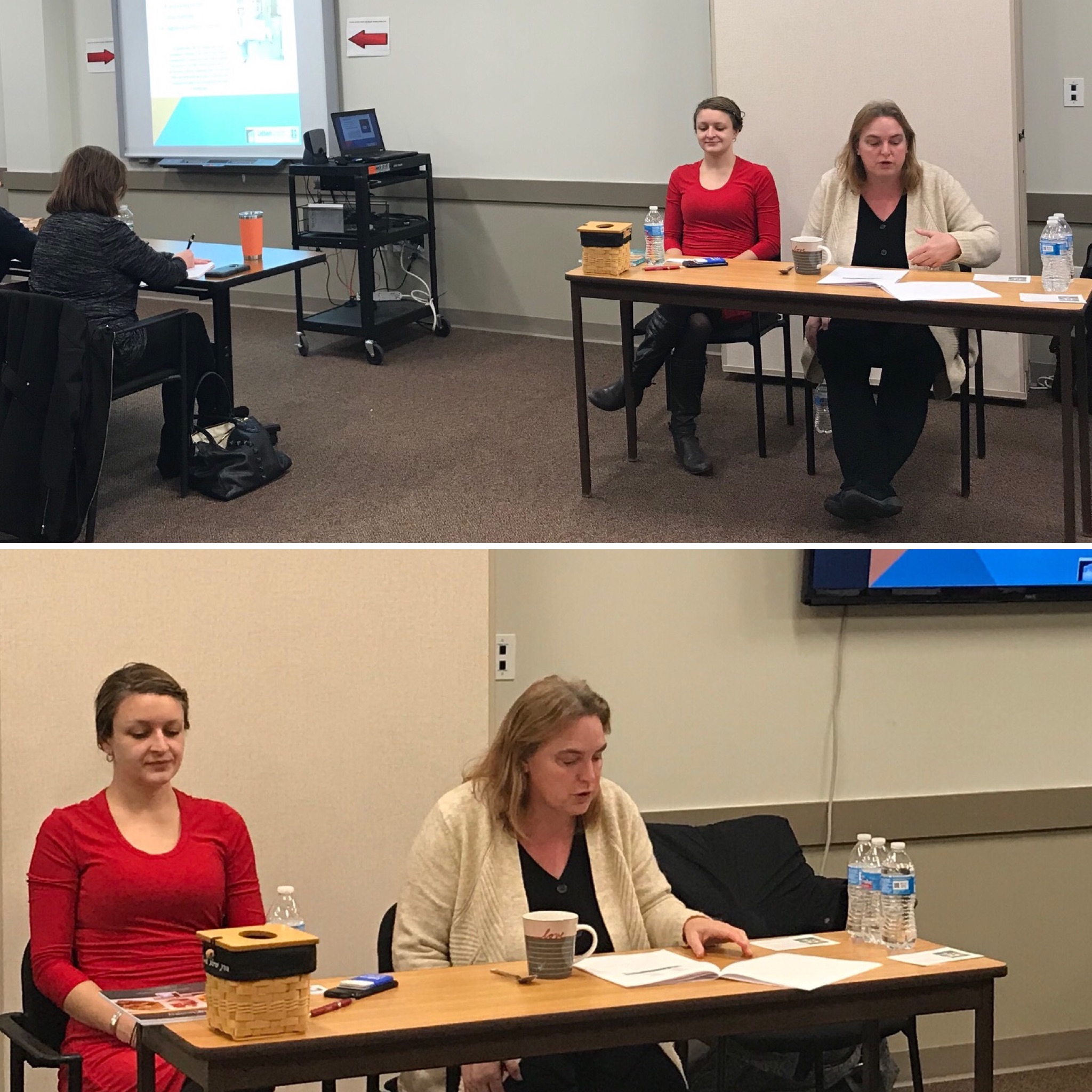Latham presents on Prader-Willi at DDS event
January 22, 2019

Latham Centers staff members with expertise in Prader-Willi syndrome (PWS) presented to professionals, parents, and Department of Developmental Services (DDS) staff at a training in Middleboro, Massachusetts on January 11th. Patrice Carroll, Kathy vanEsselstyn, and Katrina Fryklund led the two-hour training which incorporated information on many aspects of PWS.
Feedback from participants in the training was excellent. Maureen King, Regional Trainer at DDS, said “The presentation was so well received and so needed in our region. All of the evals are very positive, and the presentation was helpful to so many.” Katrina said that after the presentation, she and her colleagues answered questions about specific cases in residential homes, how to handle weight gain, and other PWS-specific topics. “One parent approached us and said this was the best presentation she’s ever heard describing PWS, what it is, and how to work with someone who has the diagnosis.” Katrina said the session inspired a college student pursuing a degree in social work. “She emailed me immediately afterwards and said the presentation opened her eyes – and hopefully a door for her. It was an epiphany for her; this is the population with whom she’d like to work.”
Highlights of the presentation follow:
Program Overview: Presenters discussed how many residents are in Latham’s Children’s Program and Adult Program; our interdepartmental approach to care including educational, residential, clinical, nursing, and vocational components, and the functionality of both our Children’s and Adult Services Programs.
-
Medical: PWS is a genetic condition that affects every system in the human body, most notably and uniformly the endocrine system. This section of the training focused on PWS and how each body system is compromised; the difference between a “typical patient” and a patient with PWS, and how to best identify, treat and follow the resulting body system abnormalities in the person with PWS in every stage of life. Current research has shown that certain medications can aid in the quality of life of the person with PWS, while other commonly used medications can have deleterious effects. This section included best practices for pharmacology, and current clinical trial results.
-
Psychosocial: The patient with PWS has unique and lifelong behavioral challenges that impact their personal relationships, schooling, and adult living situations. This section of the PWS training session focused on the most common challenges that a person with PWS lives with and how to best incorporate best practices for psycho-social treatment into their medical care.
-
-
Treatment and CAN PROMPT: Latham Centers’ CAN PROMPT model of care was presented. This model empowers parents, guardians, and staff, and includes key points related to PWS treatment:
-
High pain threshold – may not describe symptoms accurately.
-
Lack of fever even when infection is present.
-
Inability to vomit due to poor muscle tone.
-
Slow gastric mobility.
-
Lack of satiety, and how Latham provides the food in a medical situation, which helps to decrease anxiety and an individual’s initiative to seek out hospital care.
-
No doubt when meals will be given and what food will be served. No hope of getting any unplanned food. No disappointment related to false expectations.
-
Hyper-sensitivity to medications and anesthesia.
-
Stomach distention/bloating/vomiting can be life-threatening in an emergency.
-
Respiratory illness can be more serious due to poor muscle tone, making deep breathing difficult.
-
Easily fatigued and unsteady gait.
-
Skin can easily bruise.
-
Poor impulse control.
-
Our Dining Plan and the Cookbook: We discussed:
-
Latham Centers’ Mediterranean style diet (low in carbohydrates and dairy and high in Omega 3);
-
Latham’s ambition to publish the Living Healthy with PWS cookbook ;
-
and the positive results of the new menu at Latham (i.e. over 400 lbs. of weight loss for our 98 residents in the first year of implementation and an increase in calorie count for individual residents over the past two years). Questions pertaining to how we rolled out the change in menu for our population were also answered. (Considering a potentially monumental change in menu can be anxiety-provoking for parents, guardians, and staff).
-
-
-
-
-
Latham Centers is grateful to DDS for this opportunity and we look forward to future presentations in collaboration with our local, national, and international PWS Community.
-
-

